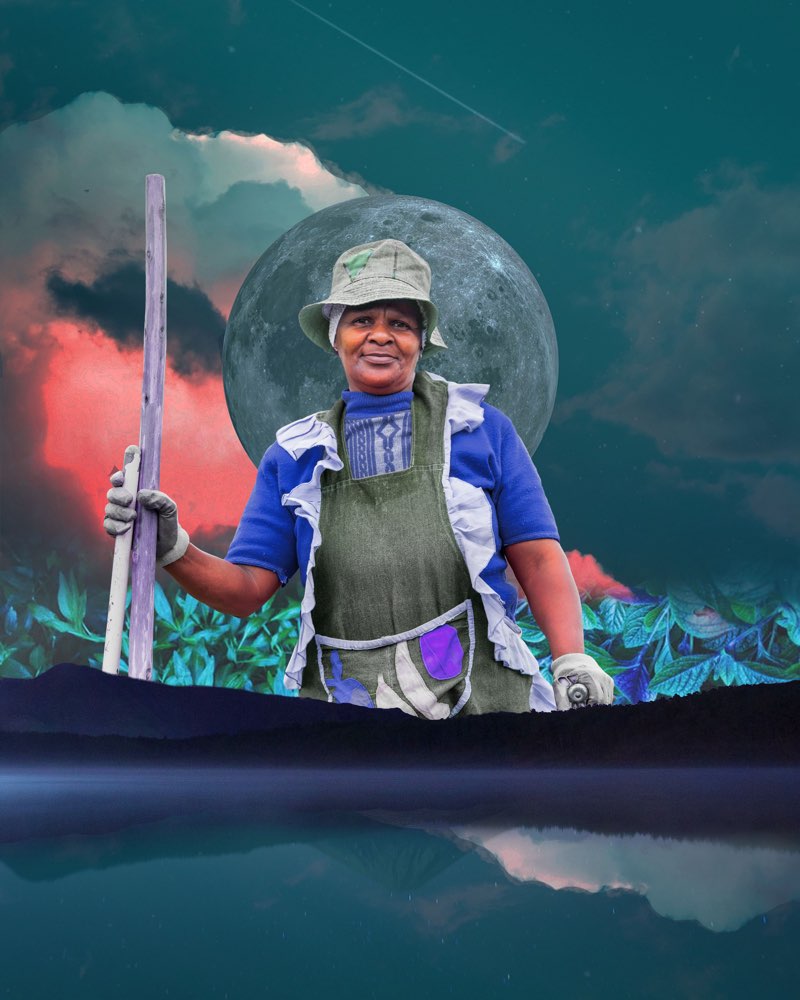
Nosdima Sam
Age at interview: 54
Keiskammahoek, South Africa
A slight woman emerges from the back room when we arrive at her home for the interview. The small, blue house is perched on a hill and her garden is on a slope. The fenced-off compound is littered with two-litre bottles filled with water. The bottles serve two purposes, the first is the storage of water and the second is less predictable. Nosdima tells us that under the night sky, the water bottles glow and deter dogs and thieves. She has a gentle manner about her. She speaks quietly and her eyes light up when she is speaking. There is a translator present, but Nosdima often answers the questions before the translator has an opportunity to speak, because she understands the questions. When she laughs or even smiles, she covers her mouth out of what seems like shy habit. Her grandchildren come in and out of the room where we are seated, and each time one walks in, she welcomed them with a smile.
My name is Mrs. Nosdima Sam. I was born on November 1963 in Ndlovini village in Keiskammahoek.[1] I am a mother of six children, and I lived with and raised all my children.
They each have very different personalities that set them apart. Babalwa, my very talkative firstborn, was born in 1984. My second, Nomzi, came a year later and she is very different from Babalwa. She is very shy, so shy that you might even think that you’ve offended her because she talks so little. My third child was also a girl, Siphokazi, who was born in 1989. She was born with a physical disability, so she could not walk or talk. After her comes Sakele, who was born in 1995.
A year after he was born, Sakele became very ill and was transferred to a hospital in Cape Town. He had a brain tumour and had to have an operation. I feel that when I was away caring for Sakele, Siphokazi thought I had left her. She became ill while I was in Cape Town with Sakele. I came back home, and we spent Christmas and New Year’s Day together. But after New Year’s Day of 1997, Siphokazi passed away. There is a lot of guilt that I hold, and I would rather not talk much about it.
Sakele still gets sick sometimes because of that brain tumour he had, but right now he is well. He is an extrovert. He can talk to you even if he doesn't know you. After him come the twins, a boy and a girl, Liyabona and Lona. They have strong senses of humour and like to joke around, but when it comes to work, they don't want to lift a finger.
All of my children were able to go to school because primary school education was free, and for high school, they worked hard to earn tuition scholarships.
I live with my husband, children, and grandchildren, a big mix of different characters. The twins like to make jokes, Nomzi and Babalwa are hard workers, and Sakele loves to play. My husband is not usually at home because he is a caretaker at Mthwaku High School, so he is often not here.
I also have two granddaughters, one each from Babalwa and Noms. My granddaughters like to go to the garden, but only when I’m planting and weeding, not when I am preparing the soil.
The land here was not difficult to start cultivating. I did it myself, with the help of my children. Typically I wake up in the morning and prepare food for the children before they go to school. Then after preparing food, I do the housekeeping and all the household chores. Then, once I’m done [with] all of that, I go to the garden and plant.
A bit of a troublemaker
I had a sister and two brothers, but my sister and one brother died. So I am now left with one living brother. Growing up, I lived mostly with my grandmother; my brothers lived in Johannesburg with my parents. I spent the early part of my childhood in Johannesburg because my parents met there whilst my father was working in the mines. Once they had children, they continued to live and work there. My siblings were accustomed to the city life and refused to live in the village.
I was a bit of a troublemaker as a child. In Johannesburg, though my siblings and I were supposed to be going to school, we wouldn't on some days. Instead we would just sit in the streets and play cards. It is easy for a child to go astray in the townships. We thought we knew it all and we were disobedient. I managed to get myself into serious trouble, so much so that my parents decided that I should not stay in Johannesburg and that I should go to the Eastern Cape and live with my paternal grandmother and aunt. At age 10, when I moved to Keiskammahoek to live with my paternal grandmother, is when my education really started.
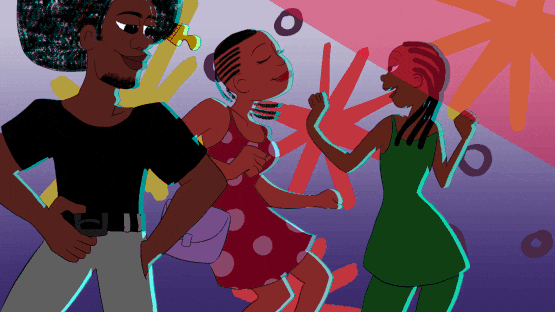
I was very extroverted and quite a social butterfly. I loved to go to the forest and fetch firewood, but more than anything else, I loved to go to the discos. Back then the discos were not crazy, like now. They were mostly for raising funds for sports teams, church groups, or for other community needs. We did not use alcohol or drugs at these events. They were about music, dancing, and eating. So when a child would ask for permission to go, parents never refused.
I could feel my blood race
I moved to Keiskammahoek from Johannesburg in 1973 and started standard one [third grade]. But then in late 1975 I moved back to Johannesburg because my mother got sick. In 1976, my siblings and I resumed school in Johannesburg, but it was bad timing because that was when the Soweto student uprising started.[2] People were angry because Black students were gunned down for protesting against apartheid.
Our primary school was close to a high school where the students were shot, so we went to join the protests. I used to join protest marches when I was as young as eight or nine. I enjoyed the protests, and I would go wherever the riots were happening, even at night.
There is something about the unity that I wanted to be a part of. I could feel my blood race as the crowds sang and chanted. What I understood back then is that we were fighting for freedom from apartheid and being forced to learn in Afrikaans. This was the language of apartheid, was another form of oppression. We were learning all the subjects at school in Afrikaans, and this is what the Black students wanted to bring to an end. The older kids from the high schools would talk about this and explain to us that this was the reason for the riots.
I remember … one occasion when we were in class at school. Then students from the high school started storming in our class; some were even coming in through the windows. They were running away from apartheid police trucks; we used to call them “hippos” because they looked like the animal. As the students were coming into our classes, they were throwing rocks at the hippos. I remember that we didn't ask any questions; we just joined them.
When we were trying to leave the school, we didn't go to the front gate of the school because there were hippos there. So, instead, we tried to leave by jumping over the fences, but we were struggling to get over them. The police in the hippos were shouting and calling us names. They called us “kaffirs,”[3] and they were shooting at us. So we just kept running — falling and climbing as we tried to get away.
After these incidents, my parents decided it was safer to send me back to the Eastern Cape. So in 1977 I moved back and continued with my studies between Ndlovini Secondary School and Saint Matthew’s High School.
My earliest memories of growing food
I don’t know much about the history of my family or community. But my grandmother always told us that in their time, they grew up farming, and they didn't buy basic food from the shop. They only bought what they could not grow. She taught me that a family could sustain itself by growing food.
When I was a child, we used to grow food, mainly spinach and onions, next to my grandmother’s house on a small piece of land. But actually, it was my mother who first taught me how to grow food on the small plot of land that my parents had in Johannesburg, when I was about six. My mother was growing spinach, cabbage, and pumpkins.
One of my earliest memories of growing food is when I won a food growing competition that we used to be a part of as kids in the school garden, when I was 14. I never wanted to be defeated, so I made sure that no one surpassed me. When I won the contest, the prize was a towel and some soap. For a child at that time, it was an amazing prize, and from then on, I was determined to remain the best.
When I think back about the difference between life in Johannesburg and life in the Eastern Cape, I realise I preferred life in the Eastern Cape. As children we could go wherever we wanted to go in the village, whereas in Johannesburg we were limited because you had to worry about cars, about the police, and about shootings. It was not a great place to live.
Even as an adult, I feel the same way. In the city you have to rent a house, pay for water, and pay for electricity. Here, in the Eastern Cape villages, we have our own houses that we build. You go to the forest, then you make poles, and then you come back and build your own house. As for water, we have … running water from freshwater streams.
With my own family
It was in high school that I met my husband. We were both in grade 11 when we met, but he dropped out and went to find a job in town. He came to visit his parents on one occasion and invited me to visit his home. I went there for what I thought was a holiday. But when we were there, he started to talk about marriage, and I did not go back home.
That is how we started living together. This was in 1983. My parents didn't know that I was married or living with someone as a wife because there were no negotiations that were made. After a month, his family approached my parents to inform them that I was living with their son and that is when the lobola negotiations[4] happened. Though the lobola negotiations might seem strange now, it was not really a strange thing to have happen because back then, that was a common way that people got married.
I lived happily with my grandmother and an aunt in the Eastern Cape until my mother died in 1993. My father died much later in 2006. There was not much change after my mother died, because I had spent most of my childhood with my grandmother and my aunt. When I go to Johannesburg is when I think about her, but when I am here in the Eastern Cape, I think more about my grandmother and my aunt than my mother. My grandmother died in 1999. After the death of my grandmother, the pillar in my life was my aunt. Though I was married with my own family, I still felt the love and support of my aunt.
I hope my children will build and maintain strong relationships with each other so that they can support and look after each other. The ones who are at school, I wish for them to pass and succeed in life. I am glad that my children have an interest in land and producing food. Even the one that is not well, he does the garden chores. Even the lazy ones, they are the ones who water the plants.
If someone wants land
The home where I lived with my grandmother is not far from here, so I have the constant feeling of being at home in this village. My husband owns this land because it was given to him by the chief and the rural land committee. I really enjoy our home, and I feel free here knowing that it is ours.
If someone wants land in this community, then they must speak to the chief. They tell the chief about themselves and why they have an interest in living in this area. I think this is the best way to go about requests for land, because then you can prevent crime by not allowing just anyone to settle here. It also means that people can be given land without having to buy it, so it is not only the rich who get land.
Before making a decision, the chief summons members of the community, and the person who wants the land introduces himself and explains why he wants to live in the community to the community members, so that they can hear for themselves. If the person needing land knows someone from the village, that tends to be helpful because that person can act as a reference for them.
When I see the land, I see the opportunity
I started living on this land and growing food in Ndlovini, Keiskammahoek, in 2007. In my current farming practice, I grow spinach, cabbage, onion, butternut, and beetroot. I may not produce large quantities, but I grow enough to feed my household and to share with neighbours and others who don’t grow food or don’t have food. My grandmother taught me how to milk sheep, goats, and cows. Now I milk the goats and cows that I have myself.
I am not sure how large the land I farm on is — maybe half an acre? When I think about the land, I feel very happy because when I see the land, I see the opportunity of growing food – food that can help me to survive when I sell it.
When I am farming, I start by preparing the soil. I first dig with a spade then I remove all the grass and weeds and put them to one side of the garden. Then I let the rain fall and leave the grass and weeds to start rotting. Once this has happened, I then add them back to the soil as I prepare to plant. I do not throw away the weeds because they are good for fertilising the soil.
All my farming is organic. I learnt about agroecology and organic farming from a community group that encourages chemical-free agriculture called Siyakholwa.[5] I joined the group in 2010.
Siyakholwa taught us how to plant the vegetables and to practise intercropping. When planting vegetables, it’s important to mix them — if you plant one row of onion then you follow it with a row of carrot and then the third row has beetroot, then onion again and so on.
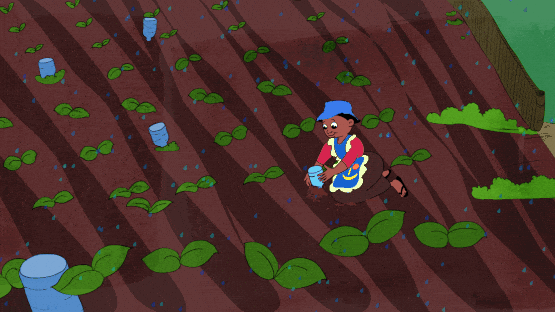
One of the challenges I have is the scarcity of water. I try and overcome this by going to the river and fetching water to water my plants and by catching all the water I can when it rains with the bottles I have throughout my garden. I am also very troubled by moles because they are damaging my plants and I have not been able to find a solution.
Their crops are weaker
In this village there are some who are using organic practices, and there are some who are using chemicals. Those who use chemical fertilisers say, “We need it to fertilise our soil because it is not rich enough.” This is partly because the soil has already been leached by the use of fertilisers in the past.
Unfortunately for them, they still don’t produce better than those who are practicing organic farming. This is in part because when their crops get attacked by pests and insects, they can’t protect their crops because they do not have enough money to buy all the chemicals they need to fully do chemically based agriculture. Their crops are weaker, more vulnerable to attack, than ours.
It doesn’t just end there, either. When people use fertilisers and chemicals in their fields, it is the sellers of the products, not the farmers, who benefit. The people who have to eat the produce suffer because they eat food that contains harmful chemicals.
I get seed from seed growers in King William’s Town. They sell seedlings to most people in this area. When I asked them about their seed, they said it was organic, but I don’t know for sure.
Land as a wonderful friend
Land is not an object; it is living. What you put into it is what you will get out. You cannot do anything without land. We build on the land, plant on the land; even the livestock is sustained by the land.
I see land as a wonderful friend because this land has sustained me. Food from this land feeds my body and my soul, which is why my connection to land is so strong. I feel very happy when I am working with the land, with the soil, because I know the benefits that I will get from the soil.
When I’m working with soil, I love the smell of the soil. I could even eat the soil! I’ve realised how important preparing the soil and planting is, so much so that I sometimes don’t even want to come into the house at night.
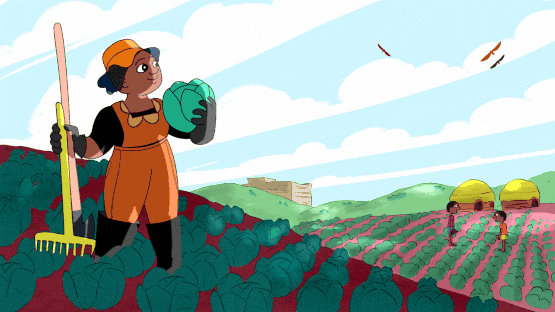
I’ve realised that when I am working in the garden, it helps to stop my mind from worrying about other things. When we moved from my in-laws’ home to here in 2007, my husband was unemployed, and it was a challenging time. It was at that point when I realised I needed to grow food in order to feed my family. I would sleep very little and go to the garden very early in the morning. I would spend the morning and afternoon there. It kept me busy.
I wish
I would like my children and grandchildren to be able to work for themselves and look after themselves without depending on other people. They should be independent and live well with other people. I wish for them to build good relationships with other people and value humanity. I really wish for them to grow food and for them to understand and pass on the knowledge about the importance of growing your own food.
I wish for a closer community. I wish for us to see eye to eye, for us to support each other and advise each other to promote healthy ways of growing our gardens so that we focus on our gardens and have less time for fighting. When people are not busy, they have a lot of time to gossip, and that creates conflict with neighbours. I see it happen in this village.
I think and believe that hunger and poverty can be made by laziness, because if you have a garden, you can avoid hunger. I can understand someone not being able to work in the fields because that requires more resources. But a garden is right by your house, and all you need is a small plot.
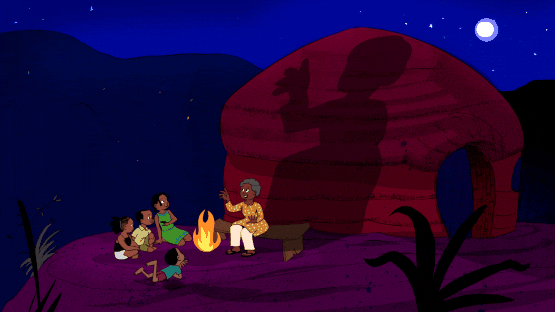
I hope that after I die, my children and grandchildren will remember me for my talkativeness and the advice that I constantly give them. I hope they will remember that I never wanted them to be dependent on other people and that hard work will carry you through life.
- Keiskammahoek is a town in the Eastern Cape Province, South Africa. Ndlovini is a rural location that sits on a hilltop within this area.
- The Soweto Student Uprising began on the morning of June 16, 1976, when students from various schools in Soweto, a neighbourhood of Johannesburg, went to the streets to peacefully protest the introduction of the Afrikaans language as a medium of instruction in schools. They were met by the s, leading to the death of many. See https://www.worldatlas.com/articles/what-happened-during-the-soweto-student-uprising-in-south-africa.html (accessed November 7, 2018).
- “Kaffir” is a racist slur used to refer to a black person. In the form of cafri, it evolved during the precolonial period as an equivalent of "negro." In Southern Africa, the term was later used as an exonym for Bantu people. The designation came to be considered a pejorative by the 20th century. See https://en.wikipedia.org/wiki/Kaffir_(racial_term) (accessed November 7, 2018).
- For centuries, the Nguni tribes of Southern Africa have practised lobola — paying a bride price to ensure a union between two tribes, similar to the dowries of Western civilisation — with two exceptions: lobola is paid in cows and is paid to the bride’s family. See https://www.google.co.za/search?biw=1216&bih=670&ei=f3XtW_n6N4OMsAHd8oDoBw&q=lobola+negotiations&oq=lobola+negotiations&gs_l=psy-ab.3..0l10.3979.7374.0.9888.13.8.0.5.5.0.474.1094.2-1j1j1.3.0....0...1c.1.64.psy-ab..6.7.636....0.0GxmfEceEt4 (accessed November 7, 2018).
- Siyakholwa’s agricultural development programme helps farmers and communities in the Keiskammahoek area in the Eastern Cape. Siyakholwa was established in 2001 to mentor and support viable rural community projects in the Keiskammahoek area. It currently works with 60 farmers from 37 villages. By up-skilling emerging farmers to grow a variety of high-value crops, improving productivity, and facilitating access to local markets, it contributes to creating sustainable jobs.
